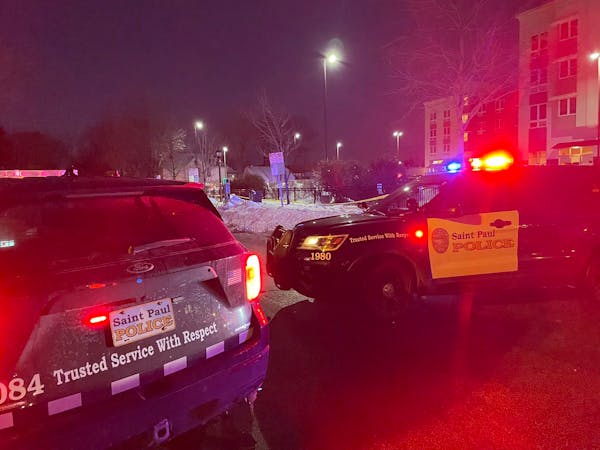The entry doors at El Rio Vista Recreation Center on St. Paul's West Side were boarded up Saturday, the smell of fresh-cut lumber wafting through the lobby.
On Friday night, someone shattered the glass in a drive-by shooting, leaving three teenagers hospitalized. The shooting took place at a memorial reception for Devin Scott, a 15-year-old boy who was stabbed to death Feb. 10 at Harding High School.
Soon after the shooting, St. Paul police arrested a teenage boy nearby, but the nature of his involvement was not immediately clear. A police spokesman said Saturday that no further arrests had been made and he had no other updates on the investigation.
Shocked by the shooting, city residents wonder what can be done to stop the cycle of youth violence plaguing St. Paul. Although no easy answers seem apparent, some held out hope that a combination of personal action, community activism and political will can make a difference.
"One of the biggest problems is, there's not as many dads in the household," said Bob Cruz, president of the West Side Boosters, an all-volunteer group that provides programming and activities for more than 800 youths. "Your mom can only do so much. If mom's working two jobs, who's watching that baby?"
Cruz set up a table at the rec center Saturday with cookies and orange juice for parents, children and anyone else who wanted to talk about keeping the community safe. The shooters, he said, "weren't West Side kids," but guns don't care who's pointing them.
"We've got to change these gun laws," Cruz said. "It's crazy to me how easy it is to get a gun. You're cool if you get a gun."
The media, he and others said, can help by reporting positive events more often, rather than showing up only in the wake of a tragedy.
The recent violence hit close to home for Jecillia Suggs, whose brother, Jeffrey Suggs-Rice, was shot and killed in Minneapolis nearly three years ago. The key to change, she said, is communication. That, Suggs said, and conflict management should be taught to children in school.
"People need to talk everything out" before resorting to violence, she said. "I think it could solve a lot of problems."
Rick Perez is a retail manager near where the shooting took place. Asked what could be done to stem the violence, he shook his head.
"That's a hard question, man," Perez said. "But honestly, it's not up to us. It goes to their upbringing. We can start programs and whatnot. But if they have gone down a path, they have to choose. You can blame the parents, but some of these kids have great parents."
Perez and others said law-breaking minors often don't face severe punishment.
"These kids, if they're old enough to shoot a gun, they're old enough to take the consequences," he said. "In some countries, if you're 12 or 13 years old, you're a man."
At Rondo Community Outreach Library, a group was planning just the kind of event that can build community. Volunteers with the Urban Farm and Garden Alliance were putting together children's summer activities at the Peace Sanctuary Garden.
"We need more things to do with appropriate supervision," said volunteer J. Thomas. "We're right now planning a good, positive event."
The police can play a role, she said, by doing more to build ties with the people they serve.
"Police need to be more involved in the community, not just running in to put out the fire," Thomas said.
"We need more things for kids to do after school," said Lisa Garcia, another volunteer. "They can't be left to their own devices."
Cruz said he remembered his own youth, when parents didn't hesitate to lay down the law to the neighborhood kids, regardless of whose children they were.
"What needs to change in the community," he said, "is more community for the youth."
New Minnesota GOP leaders seek peace with party's anti-establishment wing

Who is Republican Lisa Demuth, Minnesota's first House speaker of color?

Minnesota House GOP, Secretary of State Steve Simon return to Supreme Court
Supreme Court sides with DFL and Simon, says 68 House members needed for floor action

